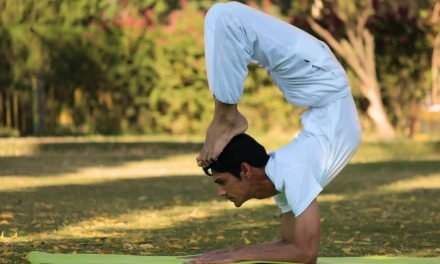
Yoga, your cure for heart disease

Sources of stress abound in today’s lifestyle. This is why more and more people are looking for calm and relaxation. See what benefits yoga can do for your health.
What Dr. Ornish’s study revealed
Cardiologist Dean Ornish of the California Institute for Preventive Medicine Research is the first Western physician to include yoga, along with diet and exercise, in programs that support heart health.
In 1990, he did a study of 48 people who had suffered from coronary heart disease: 28 of them adopted a new lifestyle (including a vegetarian diet), started doing yoga, and participated in support groups; the other 20 have not changed their habits. After a year, people in the first group had more flexible and less clogged arteries, while the arteries of the others continued to harden and clog.
Eight years later, the researcher published another study of 194 men and women with heart disease. By following the same program that was used in the first study, 80% of participants avoided bypass surgery.
Although most of his colleagues have blamed this success on an extremely low-fat diet, which would explain the “cleansing” of the arteries, Dr. Ornish firmly believes that the practice of yoga is also important for the health of the body. heart than good nutrition.
Find the relaxation answer in you

Human beings have always had a primary survival reaction in the face of danger: fight or flee. The body responds to a threat by releasing adrenaline and cortisol. In a way, it is both an alert and a mechanism that allows us to react appropriately.
The problem is that this reflex is less useful today than in the early days of humanity. Usually, it is not a mammoth that we have to fight, but a boss or a colleague. And our reaction is not the same: we stay still, the “hormonal cocktail” that is triggered boils in us and the result is an increase in our blood pressure and our cholesterol level as well as an increased risk of blood clots.
But, if the body is able to trigger a “fight or flight response”, we can also trigger a “relaxation response”, which allows the nervous system, exhausted, to rest for a bit. However, this type of response is not automatic. Relaxation is a state to which we must strive. And one of the best methods of doing this is yoga.
By breathing deeply with the abdomen, releasing all tension through movement and stretching, focusing our thoughts on each yoga pose we practice, we deactivate the “fight or flight response” button. The “relaxation response” then sets in: our heart rate slows down and our blood pressure drops. Our blood circulation is better, and our heart works less to send oxygen and essential nutrients to our organs and muscles.
In addition, practicing yoga regularly helps to lengthen muscles and connective tissues, which improves their flexibility and mobility. It is, therefore, possible to better benefit from other aerobic physical activities or strength training, with less pain and aches, which will in turn help improve the health of our heart.
Try yoga and you may be surprised to see its beneficial effects on your state of mind and your heart health! You will understand why more and more people are adopting it.



















